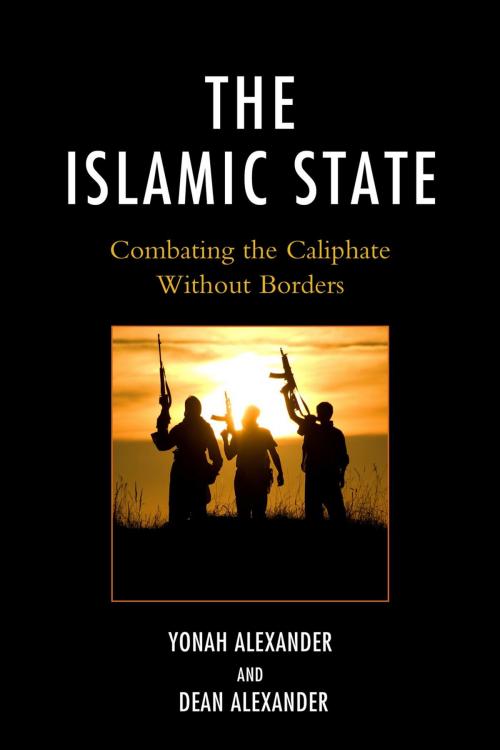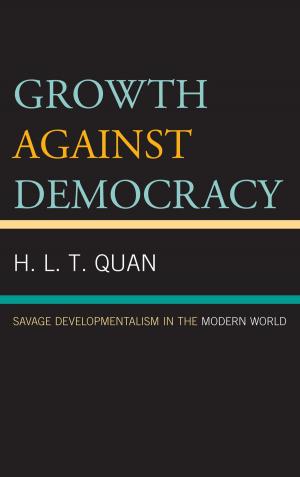The Islamic State
Combating The Caliphate Without Borders
Nonfiction, Social & Cultural Studies, Political Science, International| Author: | Yonah Alexander, Dean Alexander | ISBN: | 9781498525121 |
| Publisher: | Lexington Books | Publication: | September 8, 2015 |
| Imprint: | Lexington Books | Language: | English |
| Author: | Yonah Alexander, Dean Alexander |
| ISBN: | 9781498525121 |
| Publisher: | Lexington Books |
| Publication: | September 8, 2015 |
| Imprint: | Lexington Books |
| Language: | English |
The so-called "Islamic State" (IS) that has swept into power in parts of Syria and Iraq presents an imminent danger to the global community with its capacity as an effective, ideologically motivated, and bloodthirsty fighting force, coupled with its expanding territorial reach, on the ground and online. The IS has taken on a quasi-state form that mixes modernity with ancient rites, and aggressively promotes sectarian violence and religious extremism with a decidedly apocalyptic bent. Too, it has introduced to the Middle East a new level of extremism and brutality, marked by volatile fluidity, with far-reaching, dangerously destabilizing effects on state and non-state actors, regionally and globally.
This book offers insights into the nature of the IS and what the international community can do to combat it. In order to achieve this objective, the origins, intentions, leadership, capabilities, and operations of the IS are explored. The Islamic State’s multifaceted efforts and effects in the region and beyond are described. Also, national, regional, and global strategies that are being pursued to address the new threat are examined. To this end, a range of recommendations are offered on specific steps that governmental, intergovernmental, and non-governmental bodies can take to counter the IS menace. Lastly, additional insights are presented relevant to combating the IS and undermining its potential future capabilities.
The so-called "Islamic State" (IS) that has swept into power in parts of Syria and Iraq presents an imminent danger to the global community with its capacity as an effective, ideologically motivated, and bloodthirsty fighting force, coupled with its expanding territorial reach, on the ground and online. The IS has taken on a quasi-state form that mixes modernity with ancient rites, and aggressively promotes sectarian violence and religious extremism with a decidedly apocalyptic bent. Too, it has introduced to the Middle East a new level of extremism and brutality, marked by volatile fluidity, with far-reaching, dangerously destabilizing effects on state and non-state actors, regionally and globally.
This book offers insights into the nature of the IS and what the international community can do to combat it. In order to achieve this objective, the origins, intentions, leadership, capabilities, and operations of the IS are explored. The Islamic State’s multifaceted efforts and effects in the region and beyond are described. Also, national, regional, and global strategies that are being pursued to address the new threat are examined. To this end, a range of recommendations are offered on specific steps that governmental, intergovernmental, and non-governmental bodies can take to counter the IS menace. Lastly, additional insights are presented relevant to combating the IS and undermining its potential future capabilities.















